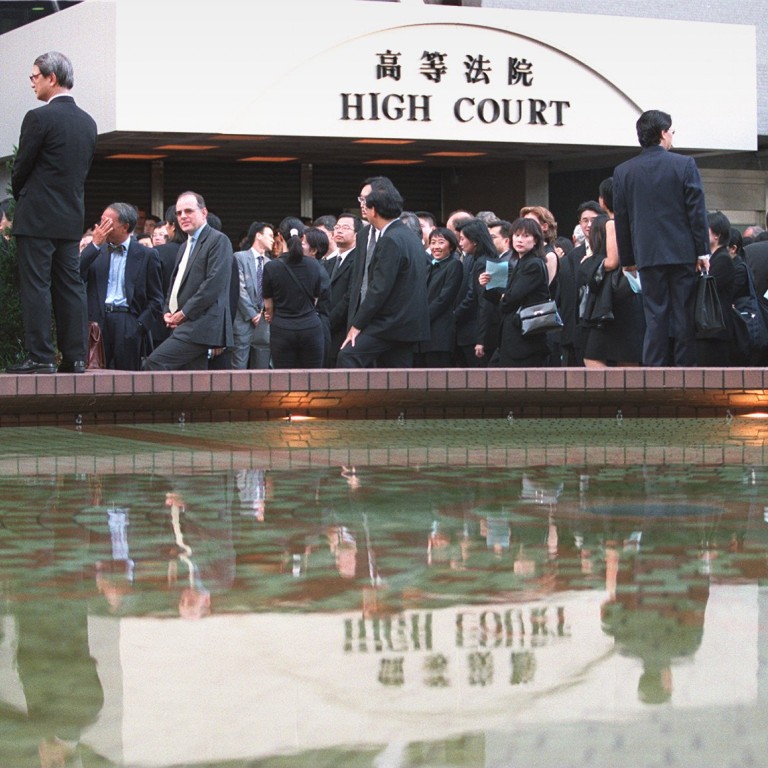
Top British lawyer counsels faith in Hong Kong legal system
The world should have confidence in Hong Kong's judicial independence, as a court took "robust and decisive action" over the release of a student leader amid Occupy Central protests in September, Britain's former attorney general Lord Peter Goldsmith, QC said yesterday.
The world should have confidence in Hong Kong's judicial independence, as a court took "robust and decisive action" over the release of a student leader amid Occupy Central protests in September, Britain's former attorney general Lord Peter Goldsmith, QC said yesterday.
Goldsmith, now vice-chairman of the Hong Kong International Arbitration Centre, was speaking as a guest at the inauguration ceremony for the Our Hong Kong Foundation, the new think tank founded and chaired by former chief executive Tung Chee-hwa.
He was referring to Scholarism leader Joshua Wong Chi-fung, who was arrested on September 26 for breaking into a forecourt outside the government's headquarters at the end of a protest against Beijing's restrictive framework on political reform. Wong was released unconditionally at the order of a High Court judge after more than 40 hours of detention without charge.
"The world … can take comfort from the fact that in the course of actions concerning the Occupy Central demonstrations [Wong] was freed … against the wishes of the police," Goldsmith said.
He added: "One can take heart about the independence of the Hong Kong judiciary that robust and decisive action was taken by a judge."
Goldsmith also said the presence of so-called overseas judges of distinction in the Court of Final Appeal was "a great strength" of the city's legal system. It allows distinguished foreign judges, especially from Australia and Britain, to serve on the court, as a means to ensure politically independent points of view.
On the rule of law, Goldsmith said: "The fact that people break the law … does not mean that a [territory] is not subject to the rule of law.
"What matters in those circumstances is how the law-breaking is dealt with," he added.
Goldsmith also said respect for the law was a "two-way street", applicable to both the government and citizens.
But he said his own remarks shouldn't be seen as supporting or denigrating the Occupy movement.
His view on the rule of law apparently differed from other speakers at the ceremony, including Tung, who said: "The Occupy movement is against the law, and we must cherish the rule of law spirit."
Foundation adviser and former City University president Chang Hsin-kang also lamented that no matter how the occupations end, Hong Kong would have suffered from two serious "internal injuries", which he said included social division and "damage to the rule of law".

